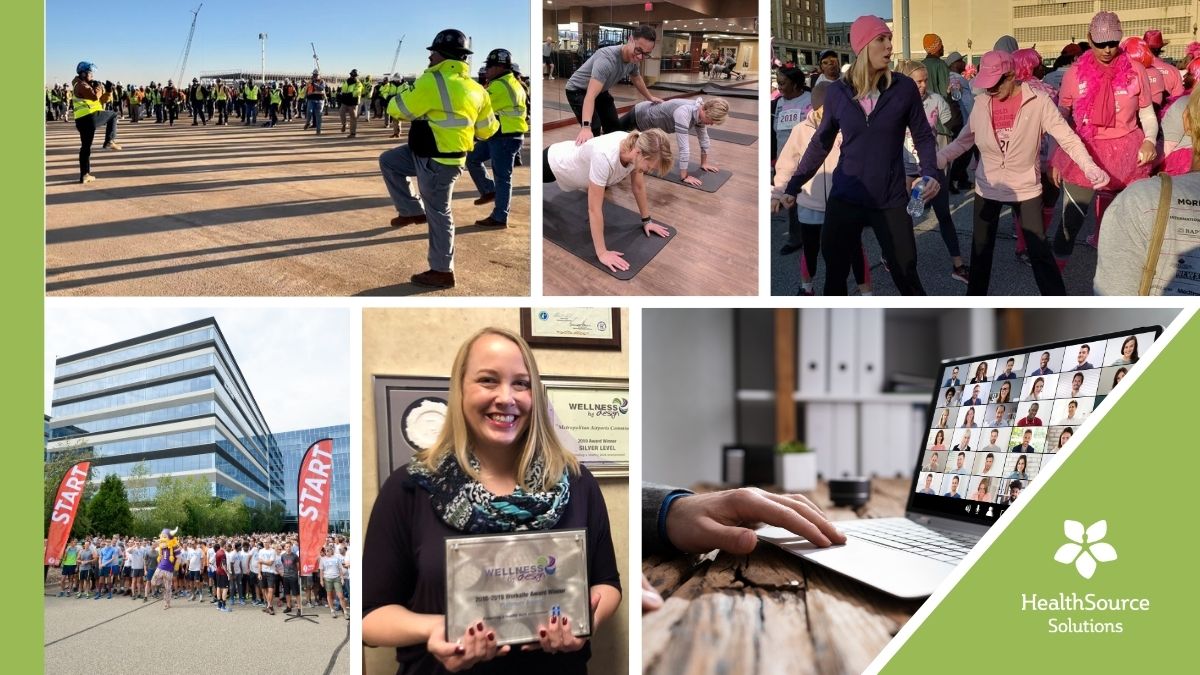5 Ways an Onsite Wellness Program Manager Can Help a Hybrid Workforce Feel Valued


Even before the pandemic experience, remote and hybrid workers had a tendency to feel ignored or less engaged than their in-office peers. Now, with years behind us, the hybrid culture is quickly becoming an accepted culture that is developing its own norms and behaviors. It might have been a challenge before, but now it is a business imperative to think “hybrid first” when it comes to organizational culture.
Considering that wellbeing and corporate investment are being seen as a metric for employee engagement, it is clear that conventional wellness programs are going to experience massive upheaval. Tackling hybrid-first as an integrated value of the wellness program is going to be demanding and evolving, but some common themes have been successful in making the transition.
- Tailor the Wellness Programs: Each culture is different, and making the small but meaningful adjustments requires a hands-on approach that can bob and weave with the nuances of workforce behavior. By starting with a hybrid-first approach, an onsite wellness program manager can channel wellness programming throughout the organization. Rather than being treated as an afterthought, the hybrid worker will see real, genuine interest in their needs and sensibilities. A well-tailored program led by an onsite wellness program manager can help employees feel valued as they see that the organization is investing in their health and wellbeing.
- Offer Personal Support: Onsite wellness program managers become an empathetic face to the wellness program, building trusting relationships with employees as they move through their wellness journey. The program manager can provide in-person and virtual support to employees, answering questions and providing guidance on how to access wellness programs and resources. Often, the program manager is the glue that holds parts of the culture together, helping affirm the values of the organization and personify the investment the company has made in wellness.
- Promote Social Connection: Creating social connections among employees is particularly important in a hybrid workforce. By integrating virtual wellness activities that integrate with in-person team members, such as fitness classes or group challenges, onsite wellness program managers can help to create a sense of community and foster social connections among the team in ways no other activity can. The hybrid workforce is particularly vulnerable to feeling left out. The onsite wellness program manager can help remind all the team members of the importance of inclusion and start initiatives with consideration of “How does this work for hybrid/remote?”
- Respect Work-Life Balance: Onsite wellness program managers are in tune with the entire population and can help employees address their work-life balance by promoting wellness activities that can be done during work hours and not intrude into personal time. This can be particularly attractive to the hybrid worker as it can introduce an added layer of structure that helps with planning and organization. By being flexible and accommodating, the onsite program manager can help reduce stress and promote positive mental health outcomes for their population, which can contribute to the employee's sense of well-being and satisfaction.
- Provide Recognition: Celebrating the remote workers is another way that an onsite wellness program manager can demonstrate the importance of the worker to their team. They can recognize employee achievements and milestones in the wellness program, such as hitting a fitness goal or completing a wellness challenge. Even small recognitions can help employees feel seen, valued, and appreciated, which builds up the worker’s resilience and confidence in their position and role.
It's difficult to create a social environment where personal contact is limited but is quickly becoming the norm and expectation. Onsite wellness program managers have been working to develop strategies and solutions that make sense, feel authentic, and offer genuine results. All successful efforts start with an empathetic approach, understanding that it may be hard for the remote worker to feel connected. Adopting the hybrid-first approach forces the corporate culture to rethink its approach, treating hybrid as the norm and not an unusual exception that must be dealt with.


